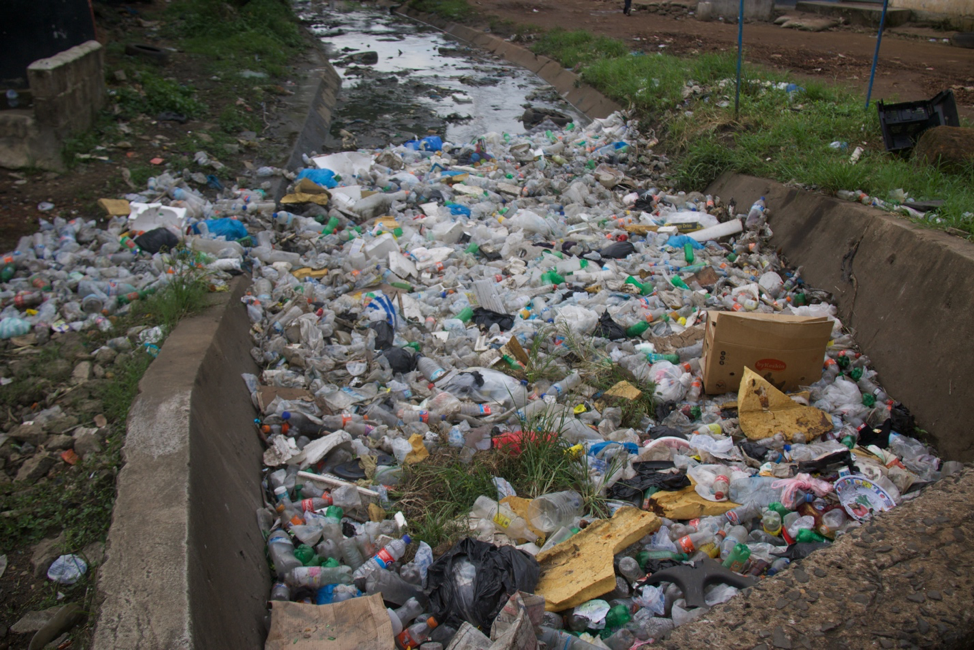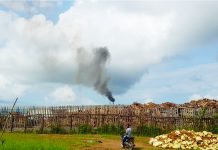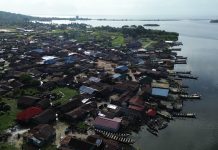Top: Plastic materials form a huge part of Liberia’s solid wastes. The DayLight/Tom Portland
By Varney Kamara
MONROVIA – A United Nations resolution to end plastic pollution has been adopted, setting the foundation for the creation of an international treaty to combat the global crisis.
On Tuesday, 175 countries, including Liberia, met in the Kenyan capital of Nairobi and approved the landmark deal to end plastic pollution, which has claimed global attention. The conference was the fifth session of the United Nations Environment Assembly known as UNEA 5-2.
“This is the most important international multilateral environmental deal since the Paris Climate Accord,” said Inger Andersen, Executive Director of the UN Environment Programme (UNEP).
The adoption of the UNEA-5.2 resolution came four months after the 2021 Glasgow Climate Change Conference, where more than 100 nations agreed to reduce methane emissions, currently responsible for a third of human-generated warming. Delegates at the COP26 agreed to cut the emissions down to 30 percent by 2030.
Both COP26 and the UNEA have a common goal of reducing the impact of pollution on climate change. During the conference, member states were urged to speed up the implementation of their Nationally Determined Contributions (NDCs), non-binding national plans highlighting climate change mitigation, including climate-related targets for greenhouse gas emission reductions, policies, and measures governments aim to implement in response to climate change.
The resolution leaves member states with the challenge of abiding by commitments they made both at the COP26 and the UNEA conference in combatting climate change and or global warming which has been heightened by plastic pollution.
Liberia, a country that has huge stockpiles of plastic pollutants spread across different garbage in Monrovia and other coastal cities, says it is committed to global efforts in lowering the impact of pollution on climate change.
In July last year, 43 months after the signing of the Paris Accord, the Liberian Government revised its NDCs to collect and collate wastes. The plan would allow the government to harmonize and integrate environmental issues and concerns into the overall national development planning, it said. In August 2019, the Environmental Protection Agency of Liberia (EPA) adopted a National Environmental Action Plan (NEAP) aimed at tackling issues such as environmental pollution. That said, it is not clear what has been achieved relative to the government’s pledge to cut down greenhouse emissions to 60% by 2030.
The Nairobi-UNEA’s resolution sets the stage for the creation of an international treaty banning plastic pollution, an ambitious goal that has been earmarked for 2024.
Plastic pollution is the accumulation of plastic objects and particles such as plastic bottles, bags and microbeads, which can affect land, waterways and oceans. It occurs when plastic has been gathered or assembled in an area and begins to negatively impact the natural environment and create problems for plants, wildlife, and even the human population. Often, this includes killing plants’ life and posing dangers to local animals, experts say.
Plastic, which has its evolution in the creation of natural materials more than a century ago, has become a top debate among global environmental champions. Despite its immense contributions to science and modernization, its pollution impact on climate change and the ecosystem has braced the global community struggling for a solution.
Pollution from plastics exacerbates climate change and can be extremely harmful to the environment. In 2019, the Center for International Environmental Law (CIEL) estimated that the production and burning of plastic would add 850 million metric tons of greenhouse gases to the atmosphere. By 2050, it was projected that the figure would rise to 2.8 gigatons of carbon dioxide per year.
Plastic pollution also has health implications, a major global concern.
Studies showed that plastic pollution can lead to respiratory illnesses such as cough, mucus, severe and changing reduction in lung functions, and can even lead to fatalities. Last year, there were nine million premature deaths globally caused by plastic pollution, according to a UN report on the environment, which recommended the banning of “forever” substances, cleaning of polluted sites and possible relocation of affected communities.
Africa, a continent with 1.3 billion people (16 percent of the world’s population), produces five percent and consumes four percent of global plastic volumes, according to a report by the World Wide Fund for Nature (WWF), a global conservation non-governmental organization working to reduce pollution impact on the environment. As of last year, China, Brazil, Egypt, Nigeria, and South Africa are among the biggest plastic polluting nations in the world, according to the UN.





Facebook Comments